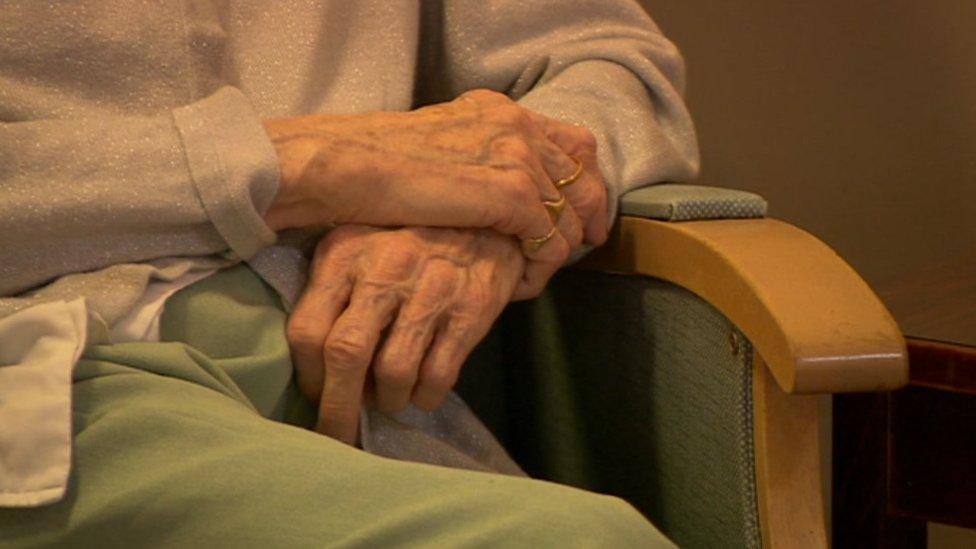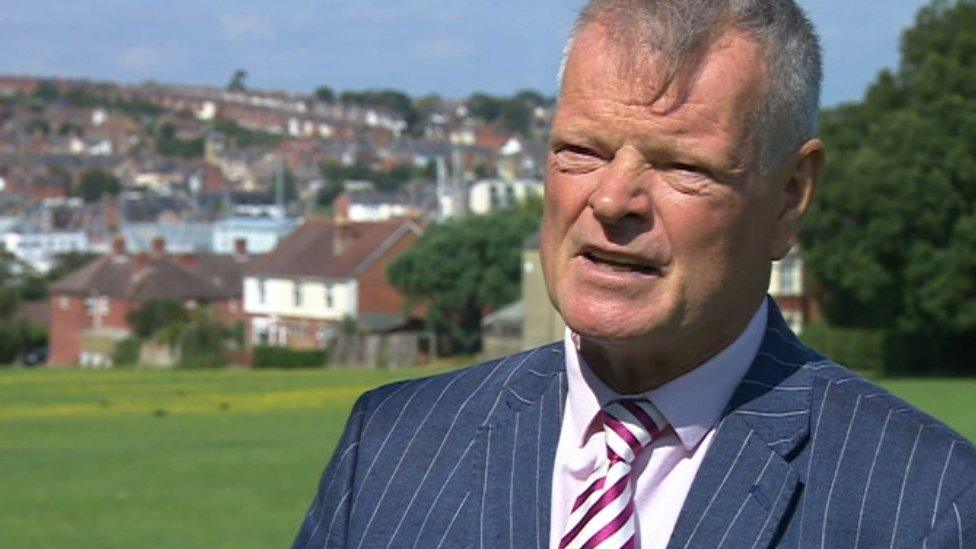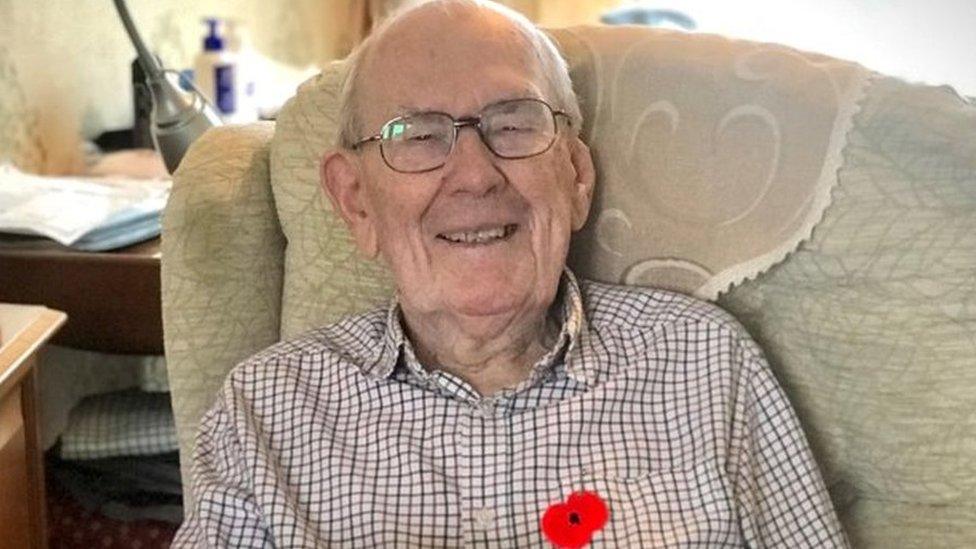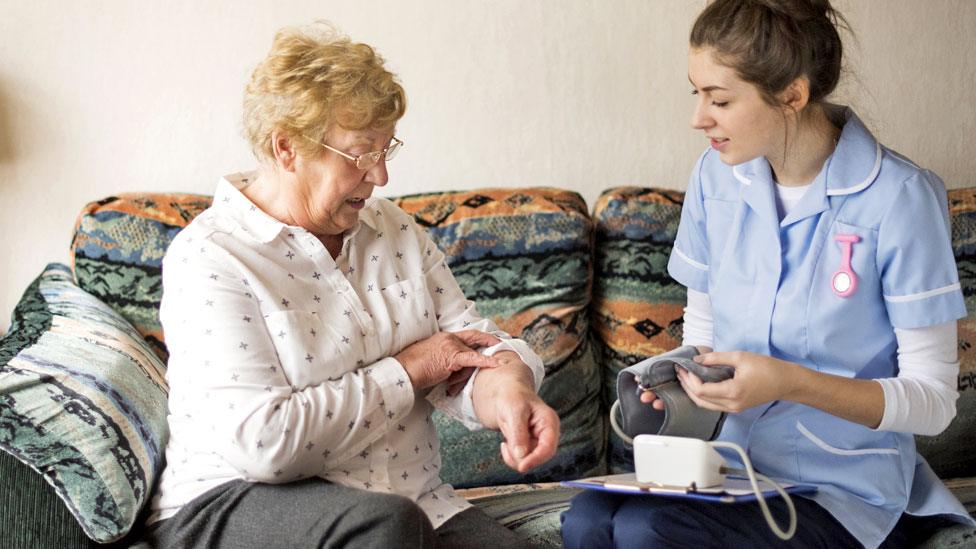Isle of Wight social care may need military help, councillor warns
- Published

The Isle of Wight is among the areas with the highest population aged over 80.
Military help could be needed to deliver adult social care on the Isle of Wight because of a staffing crisis, a senior councillor has warned.
Karl Love, Isle of Wight Council's social care lead, said the island faced "unique" problems in recruiting qualified care workers.
He blamed cuts in funding combined with the high cost of travel to the island and the loss of migrant workers.
The government said it was committed to "world-leading social care".
Mr Love said the Isle of Wight had the highest percentage of residents aged over 80 in the country, but the smallest workforce and the cost of travel to and from the mainland made it difficult to recruit care staff.
He said the island's care sector was "marching towards the cliff edge".
"We reached that point where even a small pressure puts us in an incredibly difficult position," he said.
He added the council's social care budget faced a cut of £1.6m, while mainland local authorities and the hospitality sector were offering prospective workers better pay rates.

Karl Love has called for funded increased pay for care workers nationally
The independent-led council also faces a rise in National Insurance contributions announced in November's budget and a loss of migrant workers blamed on the pandemic and Brexit.
"I am serious when I say that we may need military personal intervention and not just for the island in other parts of the country if we do not sort out our nation's sovereign border issues and funding," Mr Love said.
"We need to attract more migrant workers back to the UK and this means relaxing and developing a positive approach to migration visas application which are affordable and accessible."
The Department of Health and Social Care said: "We are committed to delivering world-leading social care, that's why we are investing an additional £5.4 billion over three years, which will allow us to build our comprehensive adult social care reform programme.
It added a £160m workforce retention and recruitment fund would help local authorities and care providers "ease workforce pressures in a variety of ways".
The Island's Conservative MP Bob Seely said the local authority and health service faced "additional challenges" in being separated from the mainland.
"These challenges have been recognised by the government and I am encouraging the government to give us a better funding deal as part of this recognition.
"I hope to receive an update from government on progress on this soon," he added.

Follow BBC South on Facebook, external, Twitter, external, or Instagram, external. Send your story ideas to south.newsonline@bbc.co.uk, external.
Related topics
- Published11 November 2021

- Published22 October 2021
